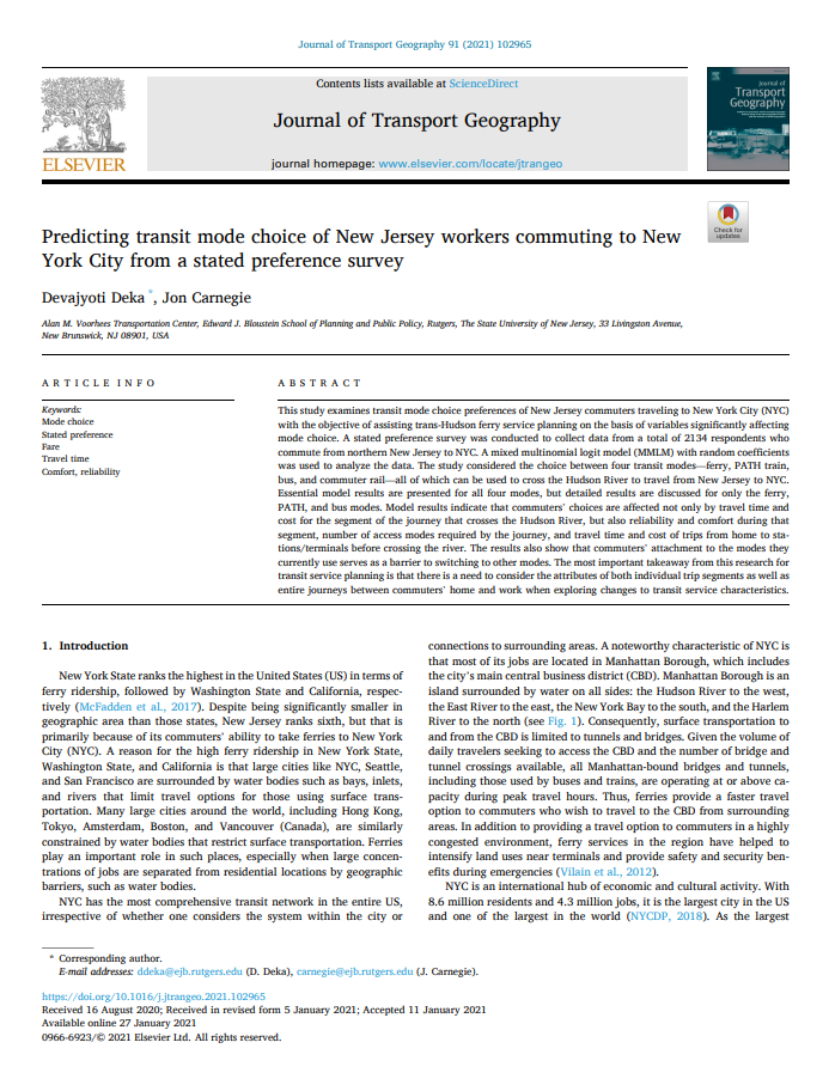Abstract
This study examines transit mode choice preferences of New Jersey commuters traveling to New York City (NYC) with the objective of assisting trans-Hudson ferry service planning on the basis of variables significantly affecting mode choice. A stated preference survey was conducted to collect data from a total of 2,134 respondents who commute from northern New Jersey to NYC. A mixed multinomial logit model (MMLM) with random coefficients was used to analyze the data. The study considered the choice between four transit modes—ferry, PATH train, bus, and commuter rail—all of which can be used to cross the Hudson River to travel from New Jersey to NYC. Essential model results are presented for all four modes, but detailed results are discussed for only the ferry, PATH, and bus modes. Model results indicate that commuters’ choices are affected not only by travel time and cost for the segment of the journey that crosses the Hudson River, but also reliability and comfort during that segment, number of access modes required by the journey, and travel time and cost of trips from home to stations/terminals before crossing the river. The results also show that commuters’ attachment to the modes they currently use serves as a barrier to switching to other modes. The most important takeaway from this research for transit service planning is that there is a need to consider the attributes of both individual trip segments as well entire journeys between commuters’ home and work when exploring changes to transit service characteristics.
